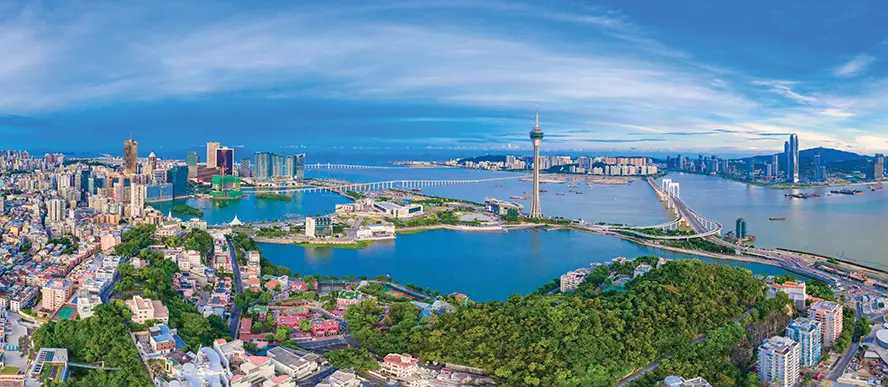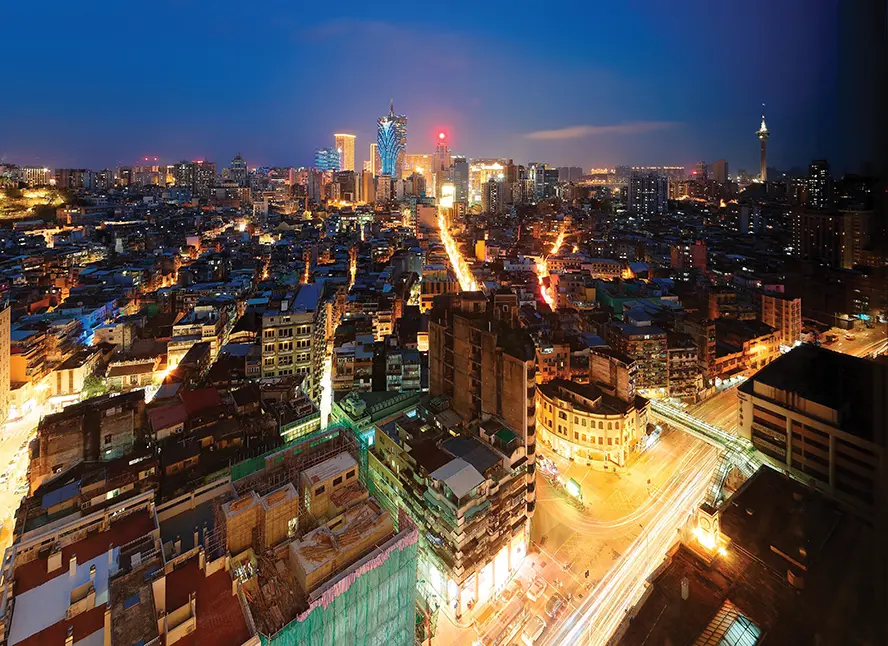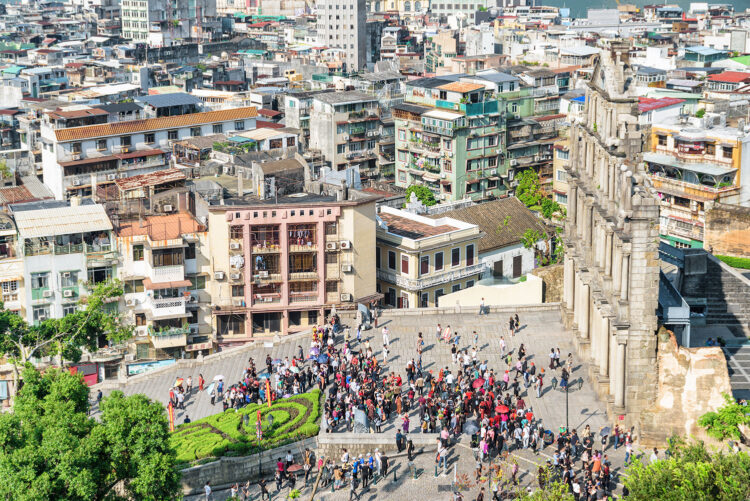Macau’s concessionaires are facing a 20% hike in their mandated non-gaming investment next year should GGR reach MOP$180 billion (US$22.3 billion) in 2023. What does this mean for the industry?
 A rarely discussed stipulation under Macau’s new gaming concession contracts signed late last year is that, should Macau-wide GGR exceed MOP$180 billion (US$22.3 billion) in any of the five years from 2023 to 2027, each of the six concessionaires will be required to increase their non-gaming investment by 20% on top of their original commitments.
A rarely discussed stipulation under Macau’s new gaming concession contracts signed late last year is that, should Macau-wide GGR exceed MOP$180 billion (US$22.3 billion) in any of the five years from 2023 to 2027, each of the six concessionaires will be required to increase their non-gaming investment by 20% on top of their original commitments.
If GGR does not hit this threshold before or by 2027 but does so in the five years thereafter, concessionaires will have to increase their investment into non-gaming by 16% in 2028, then by 12%, 8%, 4% and 0% in each of the subsequent years respectively.
Before any such potential increases are factored in, the basic amount of non-gaming investment from the concessionaires over the next 10 years is MOP$108.8 billion (US$13.5 billion), or MOP$10.88 billion (US$1.35 billion) per annum.
Each year, Sands China has committed to invest about MOP$2.78 billion (US$345 million), Galaxy Entertainment Group MOP$2.75 billion (US$341 million), Wynn Resorts MOP$1.65 billion (US$205 million), MGM China MOP$1.5 billion (US$186 million), SJM MOP$1.2 billion (US$145 million), and Melco Resorts MOP$1 billion (US$124 million).

If 2023 GGR does hit MOP$180 billion, which is looking increasingly likely, Sands China will be required to raise its non-gaming investment by 20% to MOP$3.34 billion (US$415 million) next year, with GEG increasing to MOP$3.3 billion (US$410 million), Wynn Resorts to MOP$1.98 billion (US$246 million), MGM China to MOP$1.8 billion (US$223 million), SJM to MOP$1.44billion (US$179 million) and Melco Resorts to MOP$1.2 billion (US$149 million). In total, the additional investment in non-gaming elements of the six concessionaires is about MOP$2.18 billion (US$270 million).
After experiencing three years of the COVID-19 pandemic, Macau’s economy is rapidly recovering – however it is unlikely that gaming revenues will return to past highs anytime soon given the collapse of the junket industry, which tended to inflate Macau’s GGR.
In the lead-up to the October Golden Week holiday, Sands China President Wilfred Wong said, “The current visitor flow has roughly returned to the pre-pandemic level, but there is still a gap between the current gaming revenue and that of the pre-pandemic period.”
An employee working in the finance department for one of Macau’s concessionaires also told IAG that, “While it is hard for gaming operators to recover their revenues, expenditures have also increased considerably compared to the past, including investments in non-gaming projects where it can be difficult to expect returns. Nevertheless, the company has indeed invested in non-gaming projects.”

On a positive note, the transition from a VIP-dominated market to one that is mass and premium mass focused is considerably better for profitability, providing some extra flexibility for concessionaires to fulfil their commitments.
Melco Chairman and CEO Lawrence Ho said recently that the company is well prepared for such expenditure.
“Our group has financially prepared for the increase in non-gaming investments when the GGR reaches the required target, although we still incurred a loss in the first half of this year,” Ho said.
MGM China Chairperson and Executive Director Pansy Ho added that increasing investment in non-gaming elements would not be a major issue for her company’s finances.
“We have been in contact with the syndicate of banks and generally speaking, it is not a big problem,” she said in an interview. “MGM is now in a profitable position and is well capitalized, so there is no problem in making non-gaming investments.”
Investment in many non-gaming projects differs from gaming given that returns can be minimal. For example, concessionaires have been given responsibility for the revitalization of selected old districts of Macau which require significant capital, but these areas are generally open to the public and generate no revenues.
 Nevertheless, experienced junket operator Lam Kai Kyong observed that the concessionaires would have had a “good idea” of both their required non-gaming investment and expected returns, if any, before signing their new 10-year gaming concessions last December.
Nevertheless, experienced junket operator Lam Kai Kyong observed that the concessionaires would have had a “good idea” of both their required non-gaming investment and expected returns, if any, before signing their new 10-year gaming concessions last December.
“Increasing the investment in non-gaming elements will not cause operational difficulties for concessionaires, and reaching the MOP$180 billion threshold in GGR will certainly generate [additional] profit for them,” he said.
“But we should notice that all six concessionaires in Macau also have to reduce the debt burden caused by COVID-19 so increasing the amount of investment will inevitably put some pressure on them in regard to debt repayment.”
As of 31 October 2023, Macau GGR had reached MOP$148.5 billion (US$18.4 billion). To reach the target of MOP$180 billion, the average monthly GGR for the remaining two months needs only reach a little under MOP$16 billion (US$1.98 billion) each month.
Zheng ZongLu, Professor at the Center for Gaming and Tourism Studies of Macao Polytechnic University, said this was now looking like a distinct possibility.
“Since the tourist numbers will still increase, it is highly possible to reach the target this year,” he said.
 “GGR is expected to reach MOP$180 billion if everything goes well. Visitor arrivals are still under the recovery phase and are expected to further rise in the coming months, resulting in higher GGR.
“GGR is expected to reach MOP$180 billion if everything goes well. Visitor arrivals are still under the recovery phase and are expected to further rise in the coming months, resulting in higher GGR.
“Although mainland visitors have shown signs of declining spending power, their spending on luxury goods remains strong. Despite the impact on the overall economic situation, it is believed that the impact on Macau’s GGR will not be significant.”





























